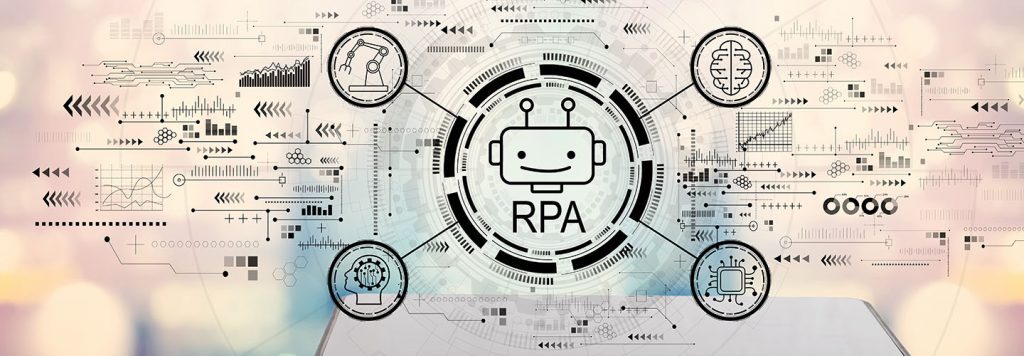
Robotic Process Automation Is A Game-Changer In The World Of Advisory Services
In recent years, businesses have embraced the benefits of robotic process automation (RPA). From carrying out mundane tasks to ensuring accuracy and consistency, RPA has allowed your traditional accountant to toss their visor aside in favor of something more modern. Today, thanks to continued advancements in RPA, your CPA now has an arsenal of data, trends, and projections to help drive business growth and sustainability. Fortunately for all, this development will only continue to pick up steam as time goes on.
Read on to discover how RPA is elevating the accounting profession and empowering accountants to make huge strides in the advancement of advisory services.
The Elevation Of Business Advisory Services With Robotic Process Automation
As software technology designed to automate and simplify mundane, repetitive tasks, the implementation of RPA has driven greater accuracy, efficiency, and knowledge. As a result of having access to more essential and timely information, owners and managers are able to make faster, more informed business decisions with the guidance of their accountants.
Here, in the public accounting space, there has been a lot of interest in RPA as a means to streamline the audit and assurance process. Rather than asking certified public accountants to manually enter data, RPA has taken on the task and successfully completes all assignments with improved accuracy and fewer distractions. Moreover, thanks to the automated process, audits are no longer limited to sample size. Rather, businesses can approach essential management functions from a holistic approach.
“Revenue audits can be automated by software robots that perform rules-based functions to execute reconciliations, analytical procedures, and dual-purpose procedures (e.g. internal control tests and tests of details),” according to an article on RPA in The CPA Journal. “Revenue is generally a high-risk area in audit engagements, and automating the tasks that do not require auditor judgment has the potential to improve audit quality by reallocating the work of auditors to analyzing the differences generated by the RPA software.”
Listen to, episode 293, “The Future Of Robots In Your Workplace,” on unsuitable on Rea Radio, Rea & Associates’ award-winning weekly podcast for business owners.
Which Processes Do Accountants Automate?
The audit processes most likely to benefit from RPA are those that include specific tasks, are repetitive, time-consuming, and that doesn’t require audit judgment. The goal is not to eliminate the human element, but to free up the human to make a greater impact on the businesses and organizations they serve. This can be done by standardizing the way processes are executed and mapping out essential information to ensure RPA achieves its intended objectives.
Below are a few areas RPA is already being introduced and how you might already be benefiting from this advancement in technology.
Reconciliation and Analytical Procedures
Using RPA, auditors can gain the ability to effortlessly log into a client’s secure fire transfer protocol (FTP) site in an effort to gain access to, compile, and save pertinent audit evidence. Types of information being pulled include current and prior year sales listings and the trial balance. Once this information is gathered, RPA is programmed to calculate the total sales per listing to compare it to the trial balance’s total. Then, if amounts reconcile, RPA software moves to the next step – calculating whether the total revenue amount between current and prior years is materially different. If so, an alert can be activated and further action can be taken to get you back on track.
Comparing Notes: Dual-Purpose Audit Tests
Another reason your audit team might implement RPA is to determine whether price and quantity are different across sales orders, invoices, and shipping documents. If a discrepancy is identified, the audit team is notified and action taken. Again, RPA is a great resource for auditors who are interested in providing more value-added services, such as precisely assessing the risk of material misstatement.
The audit side of the accounting profession isn’t the only area being elevated by RPA. Those on the tax side of the house are benefiting too. Calculations of book-tax differences and tax return prep are all being successfully automated. And then there’s the impact RPA has on our ability to provide client advisory services. Allowing RPA to collect and store specific files, pull calculations, and more gives advisors more time to perform higher-level work that will drive meaningful business results.
The RPA journey has only just begun in the accounting industry and we can’t wait to see how far it will take us. If you would like to learn more about RPA, how it’s being deployed at Rea & Associates, and how we are using it to become better advisors to our clients, contact me today.
By Cody Kiser, CPA (New Philadelphia CPA Firm)
Looking For Additional Tips & Insight? Check Out These Resources
[ARTICLE] Transforming Through Technology
[ARTICLE] COVID-19 Is Accelerating The Rise Of The Digital Economy
